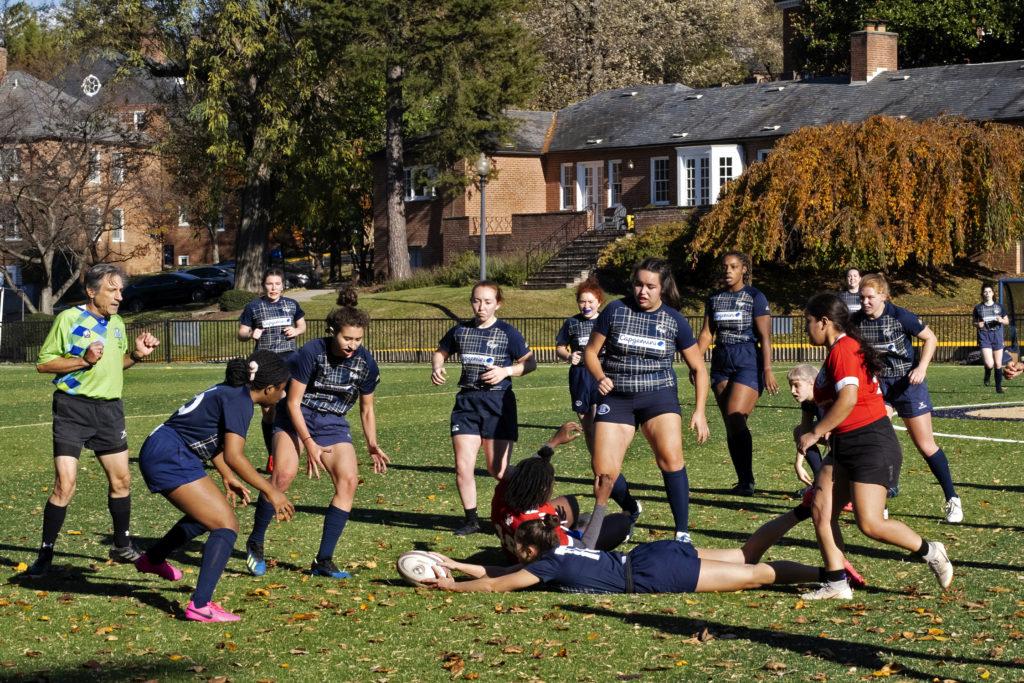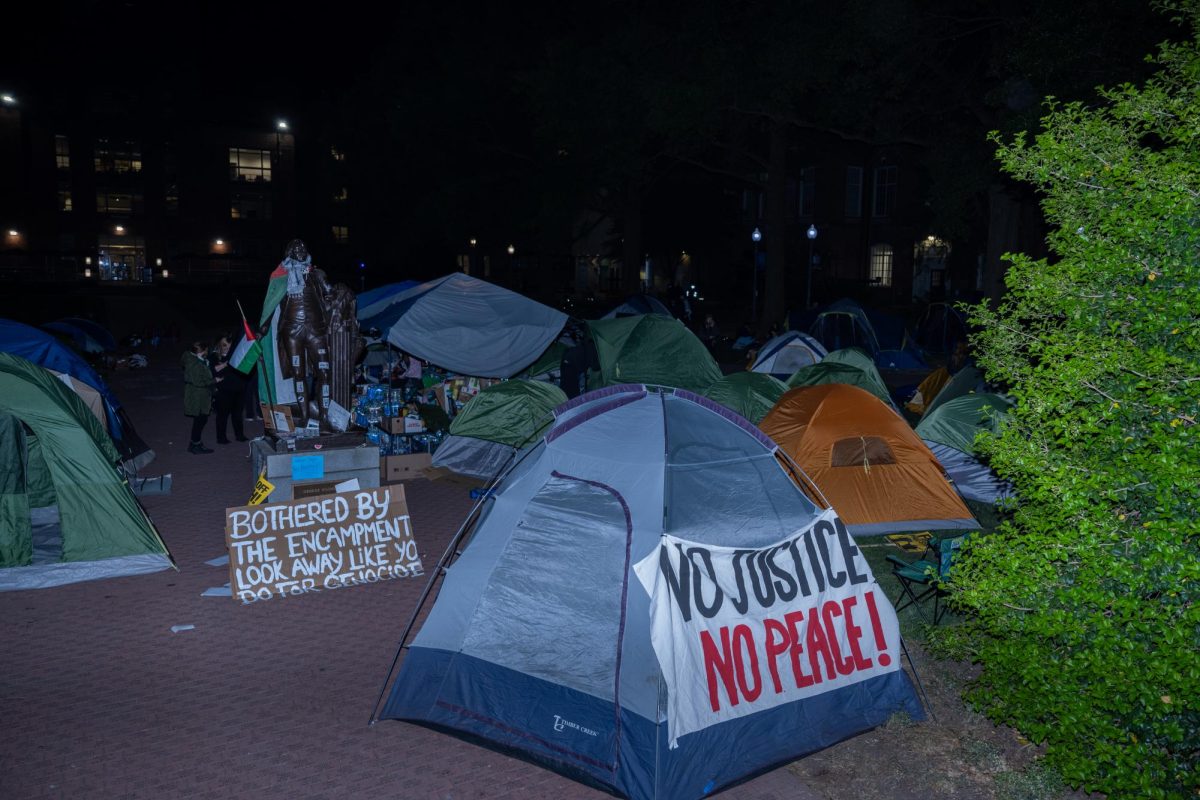Several club sports teams struggled securing practice space and equipment because of a drop-off in funding after returning in full swing this semester in light of shutdowns during the COVID-19 pandemic.
Half a dozen members of club sports teams said their funding from the Student Association has decreased as a result of the SA’s shrunken budget this year, receiving remaining funding from the Office of Campus Recreation and forcing them to host their own fundraisers to finance their sports. They said limited practice space and a lack of communication with officials about booking practice space has damaged their membership levels and day-to-day operations.
Aubre Jones, the director of recreational sports, said concerns from club sports about access to practice spaces arise because of a lack of space around GW’s urban location which also affects varsity sports on campus. He said adding lights to the Mount Vernon Campus fields could extend the number of hours the field is used and add to available practice space.
Jones said club teams request practice spaces through the scheduling office in the University Student Center or through the Office of Campus Recreation. He said club sports funding from the SA varies by year, and campus recreation allocations have consistently hovered at $75,000 during the past five years.
He said 16 teams practice at off-campus facilities not owned by GW, 10 practice in the Lerner Health and Wellness Center, nine practice on the Mount Vernon Campus, eight regularly practice in the Smith Center and two practice in other GW buildings.
“The lack of space not only affects the sport clubs at GW, it also has varsity sports at GW like Baseball, Water Polo and Gymnastics traveling off-campus to practice,” he said in an email.
Senior Emily Irvine, the social chair of the women’s Rugby Football Club, said the University has not clearly outlined when to meet funding request deadlines, leaving some members confused about the process. The rugby club received $3,150 of its nearly $7,000 funding request from the SA this year after raking in $3,650 from the SA in 2019, according to the SA budget book.
“The school’s not being super helpful in terms of helping us help ourselves,” Irvine said. “A lot of us were sophomores. We came back and now we run our club.”
She said daylight savings shortened how long the team can practice outside before it gets dark on the Mount Vernon Campus, where fields lack lighting and often cut practices short. She said the team also meets in the Lerner Health and Wellness Center but must coordinate with other teams’ schedules, making it more difficult to find open practice slots.
“We’re headed into a match this weekend, and I’m kind of worried about it,” Irvine said. “I have class until six. I haven’t been to practice in two weeks. It’s over by the time I’m out of class.”
Senior Carrie Kowalyk, the co-president of GW Women’s Club Volleyball, said the team practiced at least three times a week before the pandemic, but members now struggle to log two weekly practices because of the limited hours and space in the Smith Center and Lerner, which are occupied by varsity sports who take precedence from the University. The team’s funding this year remained nearly consistent with its 2019 level surpassing $4,000 but falling about $10,000 short of its request this fall.
Kowalyk said a lack of guidance from officials has been inconvenient for players and caused stress for e-board members who have been left searching for solutions on their own.
“I didn’t sign up to be a logistics coordinator and a volleyball president,” Kowalyk said. “It’s becoming 10 times the work that it would have been before the pandemic because they don’t have any of their processes in place.”
She said team members hosted fundraisers in hopes of affording rental cars, flights and hotel rooms for when they travel to competitions. She said the team is required to hire a security guard to enforce the mask mandate at tournaments hosted at the University, which has made travel expenses even more unaffordable.
“We got $700 to be in Phoenix for four days,” Kowalyk said. “That’s not going to cover it.”
Junior Dorsey Ducharme, the president of GW Club Tennis, said the staff member who used to assign teams tennis court space on the Vern before the pandemic is no longer employed by the University. He said no one has filled the position and scheduling practice times on the courts has become more of a challenge.
He said officials have failed to monitor and clean the tennis courts, where unkempt facilities and broken nets have discouraged members from attending practices. The tennis team’s funding from the SA plummeted this year, totaling less than $600, down from more than $2,200 in 2019, according to the SA budget book.
“People aren’t as willing to come to practice anymore because it’s very clear the facilities aren’t being taken care of,” Ducharme said. “We probably have the worst practice turnout since I have been here as a student.”
Ducharme said the team cannot host any tournaments at GW because of the state of the facilities, forcing the club to travel to other universities.
“You can’t have a tennis center with no one working there,” Ducharme said. “There’s no guidance or authority figure running the courts at all.”
Senior Colin Rosadino, the president of Club Baseball, said the team lacks sufficient funding from the SA. He said the team, which practices on the Vern’s softball field without any baseball field on campus, has been strained waiting for funding that’s distributed after the season starts.
Club Baseball’s funding from the SA increased to more than $7,300 this year, up from about $4,700 in 2019, according to the SA budget book. The team’s package came nearly $10,000 short of its request this fall, the book shows.
“We just don’t have the resources we need to practice at the level we want to practice at so when we get to games we can play at the same level as the teams we’re playing,” Rosadino said.







